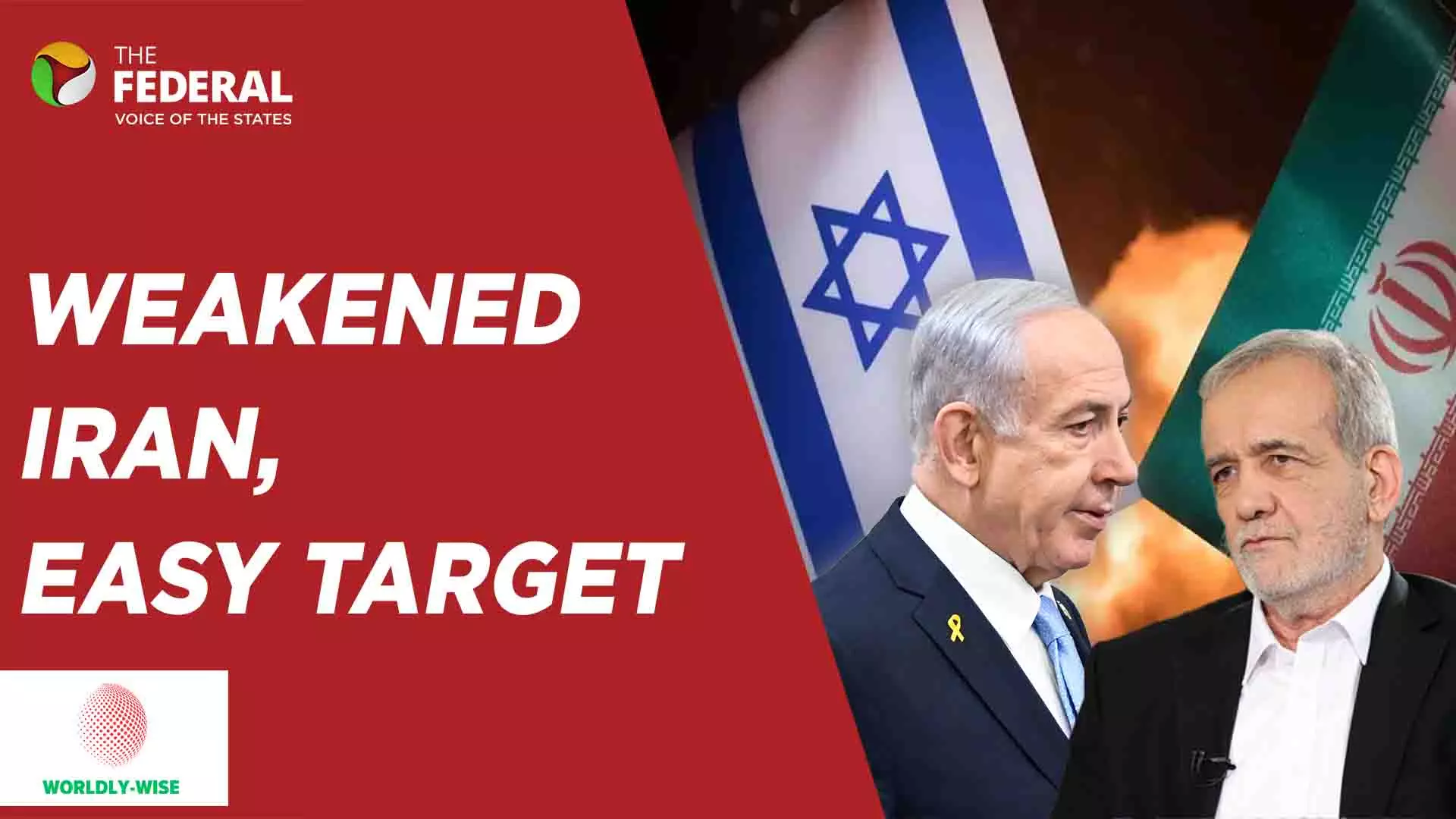
Analysis: Divisions among Muslim nations enable Israel's attack on Iran
Israel’s latest airstrikes on Iran’s nuclear facilities raise fears of wider conflict

Israel’s airstrikes on Iran over its nuclear enrichment have reignited global tensions. With the US distancing itself officially but still backing Israel, fears grow about an escalation in West Asia. The Federal’s K S Dakshina Murthy explains why this moment matters and what could follow.
Iran’s nuclear progress
Israel’s airstrikes early Friday (June 13) were triggered by the International Atomic Energy Agency’s (IAEA) finding that Iran enriched uranium up to 60 per cent, close to weapons-grade. Nuclear arms require enrichment at 90 per cent. Iran was earlier bound by the 2015 nuclear deal to limit enrichment below 4 per cent, but that agreement has floundered since US President Donald Trump pulled out in 2018.
Also read: Why Iran-Israeli conflict could send oil prices higher
“Israel’s strike comes even as Iran and the US prepare for new nuclear talks in Oman’s capital Muscat,” says Murthy.
This isn’t the first time Israel has acted. It previously attacked Iran through cyber warfare using the Stuxnet virus and targeted its nuclear sites.
Israel acts, US reacts
Despite Trump’s reported reluctance for a strike, Israel moved ahead unilaterally. Iran has responded by launching over 100 drones toward Israel, most of which were intercepted.
Also read: Trump urges Iran to accept nuclear deal with US, warns Israel's attacks 'will only get worse'
“There’s concern this could become a larger war,” Murthy notes. But, current assessments suggest a full-scale conflict remains unlikely.
The US has clarified it wasn’t involved in the latest strike, but its deep support for Israel complicates the optics. “Even if the Trump administration didn’t approve this attack, the US-Israel relationship will continue unhindered,” he adds.
Iran’s allies weakened
Israel and the US have successfully neutralised most members of Iran’s “Axis of Resistance” — including Hezbollah, Hamas, the Houthis, and Bashar al-Assad’s regime in Syria. Notably, Ismail Haniyeh, the former Hamas leader, was killed in a prior Israeli strike in Tehran.
“Syria has now tilted closer to the US after the fall of Assad and rise of Haider al-Sham,” Murthy says, adding, “Iran’s traditional alliances in the region have crumbled.”
Israel, he says, continues aggressive actions partly because it faces little resistance, with regional powers silent or aligned diplomatically with Tel Aviv.
Shia-Sunni fault lines
One reason for Iran’s growing isolation is the historic divide between Shia and Sunni Muslim nations. “Saudi Arabia, the guardian of Sunni Islam, strongly opposes a nuclear Iran,” Murthy explains. This sectarian rift has kept countries like Bahrain, the UAE, and even Turkey open to relations with Israel.
Meanwhile, the suffering of Palestinians in Gaza continues. “Despite rhetorical opposition to Israel, most Muslim nations have done little to stop the attacks,” Murthy says.
Israel’s nuclear hypocrisy?
While Iran faces international scrutiny, Israel has never acknowledged its own nuclear arsenal, estimated to include around 400 nuclear-equipped weapons.
Murthy concludes, “What gives Israel the confidence to strike is US backing and a weak, divided region. Iran is now fighting to hold on to influence and its nuclear ambitions.”
(The content above has been generated using a fine-tuned AI model. To ensure accuracy, quality, and editorial integrity, we employ a Human-In-The-Loop (HITL) process. While AI assists in creating the initial draft, our experienced editorial team carefully reviews, edits, and refines the content before publication. At The Federal, we combine the efficiency of AI with the expertise of human editors to deliver reliable and insightful journalism.)

